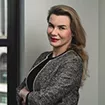Angelika Hellweger of financial crime specialists Rahman Ravelli considers the case and the warning signs of such wrongdoing.
Danish police arrested 135 people suspected of laundering money defrauded from elderly people.
The money was defrauded by contacting elderly people and convincing them to transfer money from their bank accounts or provide personal banking information.
The police have said that those arrested were not the organisers of the criminal operation. They were "mules", who allowed their bank accounts to be used to launder the money. The authorities have prepared money laundering charges against a total of 212 people.
The case highlights the need for vigilance from financial institutions, who can play an important role in preventing, detecting and reporting suspicious activity relating to the defrauding of elderly people. When assessing customer-related behaviour, particular attention needs to be paid to a person's historical financial activity and whether their current transactions are consistent with their previous transactions.
There is a need to be aware of potential red flags - unusual activity such as large, frequent or unexplained withdrawals. If an elderly customer with known physical or intellectual difficulties cannot detail sound reasons for unusual activity on their account, concerns have to be raised.
If, for instance, the individual changes from a basic account to one that offers more complicated services and that customer does not seem to fully understand or need this type of service, this could be a sign of suspicious activity. Other red flags could include where an older customer's account suddenly has new connections to accounts abroad or where they receive and transfer money to other accounts with whom they have no known personal relationship.
In addition, when a customer sends multiple checks or wire transfers with descriptions in the memo line such as "tech support services," "wins" or "taxes," this could also suggest that they are sending unusual payments that should be examined.
The content of this article is intended to provide a general guide to the subject matter. Specialist advice should be sought about your specific circumstances.

